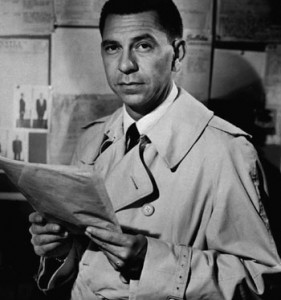Boston Blackie was the lead character in fourteen movies and two separate radio series’ in the 1940s and a TV series in the 1950s. Before that he was a character in a series of short stories by Jack Boyle, the first few stories were collected in the 1919 book called Boston Blackie.
In literature, Blackie was a master criminal. He was hardly alone in that as both the Lone Wolf and the Saint were reformed thieves. What made Blackie different is not only was he a thief but he was a thief written with exceedingly noble character. The book opens with an introduction where Boyle describing his first meeting with Boston Blackie in San Francisco after the San Francisco Fire where he was tenderly caring for children left homeless. Boyle highlighted his dedication to his own moral code and suggested readers were in no position to judge the man.
We learn that Blackie has a wife named Mary. This seems to be the one thing both radio and TV shows took from the book in naming Blackie’s girlfriend in both mediums. They are partners in life and in crime. Both are pillars of the criminal community.
They commit all sorts of crimes but stop short of murder. Blackie, Mary, and their friends live according to a criminal code of honor. And Blackie is the ultimate upholder of the code. In the first and best story, Blackie is robbing a safe when he meets the son of the owner, who is a poor little rich boy left all alone. Blackie manages to get the boy a better home life and bring his parents together while still getting away with a fabulous jewel.
Blackie has reasons that he thinks makes most of his crimes virtuous. He plots to steal from a ship as revenge on the ship owner for treating Mary’s father badly. Blackie gives up the fruits of one robbery to save a poor man being railroaded by the police. In keeping with the criminal codes, he goes to prison rather than turn in a criminal who killed someone.
The only tracking down of a criminal occurs when Blackie goes after a bigamist who got out of prison because of his practice of encouraging jailbreaks and snitching to the guards to get reductions in his sentence, getting several prisoners killed while escaping.
The police and prison officials are universally corrupt in the Boston Blackie stories. Framing people for crimes they didn’t commit and being willful sadists is part of the job description. In many ways, this reflects big city police corruption and plays into the distrust the public had for the police.
It may stem from writer Jack Boyle’s run ins with the law. Boyle spent 11 months in San Quentin and created Blackie while serving in Canon City near Denver. Boyle’s stories embellished his criminal career, though. He actually was in prison for check forgery. (Source: In Search of Jack Boyle)
As a book, Boston Blackie has a twisted moral sense to it. Often times, I’ve heard old time radio police programs and various leaders from the era complaining about literature that glorifies criminals. I never understood the full thrust of what was meant by that until this book. I often imagined books that, like modern media, glorify sadistic murderers for being as bad as they wanna be. Boston Blackie instead glorifies criminals as honorable, saintly figures who live by a code of honor.
The book’s relation to the radio show and the later Chester Morris movies is a bit strained. While the Lone Wolf and the Saint shifted in literature, Blackie’s transformation from an honorable crook to straight-laced hero came exclusively on radio and film. (Update: Curt notes in the comments that the last three Blackie stories which weren’t collected in this book saw a change in Blackie to the character he’d become in the 1940s films.) He began as a reformed thief in the Chester Morris movies. By the late 1940s, one episode of the radio series suggested Blackie had never been in trouble with the law at all.
The book comes from the same era as another book that launched a media franchise, Tracer of Lost Persons (See review here. Like Tracer of Lost Persons, this book has its share of pretty dated sappy melodrama. Unlike Tracer of Lost Persons, there’s far fewer surprises or goofiness to add to the entertainment value. The main draw of the book is if you want to see the origins of Boston Blackie as a literary character. On its own, the book doesn’t have a whole lot to commend it.
Rating 2.25 out of 5

